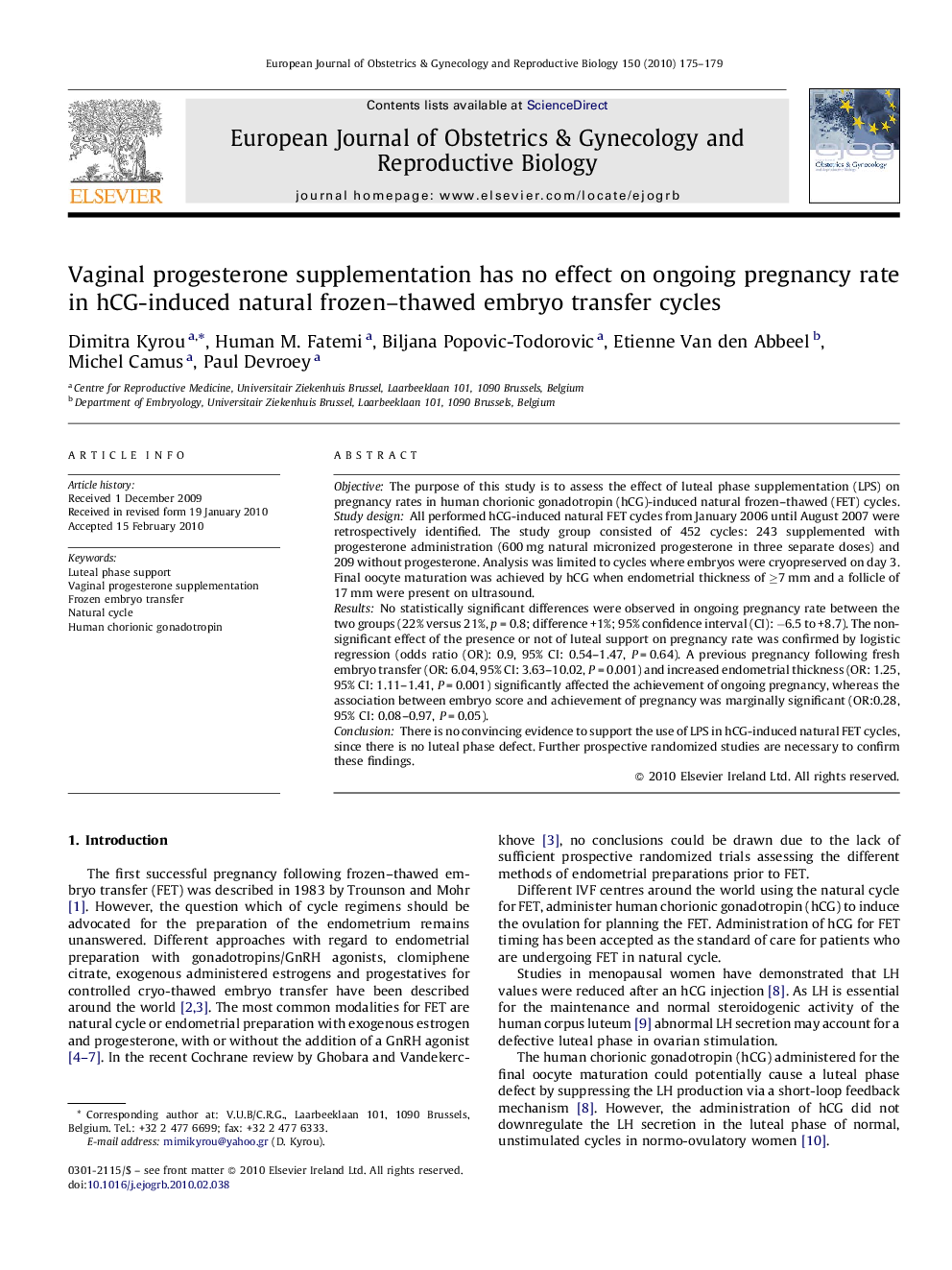| Article ID | Journal | Published Year | Pages | File Type |
|---|---|---|---|---|
| 3920920 | European Journal of Obstetrics & Gynecology and Reproductive Biology | 2010 | 5 Pages |
ObjectiveThe purpose of this study is to assess the effect of luteal phase supplementation (LPS) on pregnancy rates in human chorionic gonadotropin (hCG)-induced natural frozen–thawed (FET) cycles.Study designAll performed hCG-induced natural FET cycles from January 2006 until August 2007 were retrospectively identified. The study group consisted of 452 cycles: 243 supplemented with progesterone administration (600 mg natural micronized progesterone in three separate doses) and 209 without progesterone. Analysis was limited to cycles where embryos were cryopreserved on day 3. Final oocyte maturation was achieved by hCG when endometrial thickness of ≥7 mm and a follicle of 17 mm were present on ultrasound.ResultsNo statistically significant differences were observed in ongoing pregnancy rate between the two groups (22% versus 21%, p = 0.8; difference +1%; 95% confidence interval (CI): −6.5 to +8.7). The non-significant effect of the presence or not of luteal support on pregnancy rate was confirmed by logistic regression (odds ratio (OR): 0.9, 95% CI: 0.54–1.47, P = 0.64). A previous pregnancy following fresh embryo transfer (OR: 6.04, 95% CI: 3.63–10.02, P = 0.001) and increased endometrial thickness (OR: 1.25, 95% CI: 1.11–1.41, P = 0.001) significantly affected the achievement of ongoing pregnancy, whereas the association between embryo score and achievement of pregnancy was marginally significant (OR:0.28, 95% CI: 0.08–0.97, P = 0.05).ConclusionThere is no convincing evidence to support the use of LPS in hCG-induced natural FET cycles, since there is no luteal phase defect. Further prospective randomized studies are necessary to confirm these findings.
